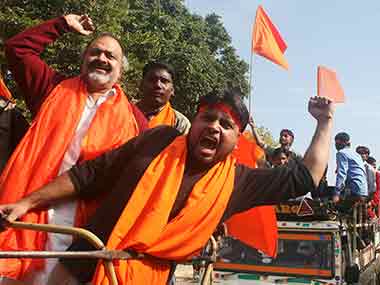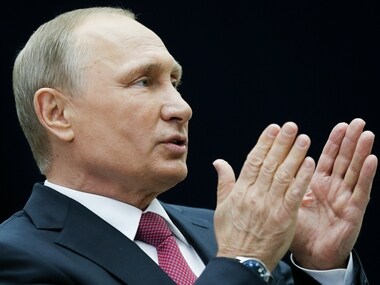 BERLIN (Reuters) - Germany’s Social Democrats (SPD) leader will try on Thursday to convince a reluctant party that it has a duty to discuss forming a government under conservative Chancellor Angela Merkel, for the sake of German and European stability. The leader of the Social Democrats (SPD) Martin Schulz gives a statement at the party headquarters in Berlin, Germany, November 27, 2017. REUTERS/Axel SchmidtGermany, Europe’s political and economic powerhouse, has been struggling to build a new government since a Sept. 24 national election in which Merkel’s conservative bloc and the SPD both lost support, while an anti-immigrant party surged into parliament, complicating the potential coalition combinations. Merkel, her own political future on the line after 12 years at the helm, is making overtures to the centre-left SPD - her partner in government over the past four years - after her bid to form a three-way coalition with two smaller parties failed. SPD leader Martin Schulz, who first announced that the party would go into opposition after seeing its time in a Merkel-led “grand coalition” rewarded with bruising losses at the polls, must now convince his party to revisit that decision. An outspoken advocate of deeper European integration, Schulz also wants to push Germany towards embracing French President Emmanuel Macron’s ideas for closer cooperation on defence, migration and euro zone governance. [nB4N1MK00Y] The party’s leadership wants exploratory talks on supporting a conservative-led government, which could fall short of a formal coalition, but Schulz, himself up for re-election at the congress, must win his party’s backing. Party rank-and-file, licking its wounds after the defeat, is expected to want the SPD to demand that Merkel pay a high price in return for its support. “A renewed Grand Coalition is not a possible outcome of the talks,” a motion submitted to the congress by the SPD’s youth wing said, adding that voters’ withdrawal of support from both parties could not be seen as a mandate for its continuation. The SPD had a “historical responsibility” not to enter government since the far-right Alternative for Germany party would become the official opposition if they did so, the youth wing added. On the divisive issue of immigration, one of the main reasons for the collapse of Merkel’s first effort, the SPD opposes a conservative plan to extend a ban on the right to family reunions for some asylum seekers. But SPD vice-president Aydan Ozoguz warned against “repeated skirmishes” over refugee rights, saying that Germany was no longer receiving hundreds of thousands of refugees from the Middle East as it had in 2015.
BERLIN (Reuters) - Germany’s Social Democrats (SPD) leader will try on Thursday to convince a reluctant party that it has a duty to discuss forming a government under conservative Chancellor Angela Merkel, for the sake of German and European stability. The leader of the Social Democrats (SPD) Martin Schulz gives a statement at the party headquarters in Berlin, Germany, November 27, 2017. REUTERS/Axel SchmidtGermany, Europe’s political and economic powerhouse, has been struggling to build a new government since a Sept. 24 national election in which Merkel’s conservative bloc and the SPD both lost support, while an anti-immigrant party surged into parliament, complicating the potential coalition combinations. Merkel, her own political future on the line after 12 years at the helm, is making overtures to the centre-left SPD - her partner in government over the past four years - after her bid to form a three-way coalition with two smaller parties failed. SPD leader Martin Schulz, who first announced that the party would go into opposition after seeing its time in a Merkel-led “grand coalition” rewarded with bruising losses at the polls, must now convince his party to revisit that decision. An outspoken advocate of deeper European integration, Schulz also wants to push Germany towards embracing French President Emmanuel Macron’s ideas for closer cooperation on defence, migration and euro zone governance. [nB4N1MK00Y] The party’s leadership wants exploratory talks on supporting a conservative-led government, which could fall short of a formal coalition, but Schulz, himself up for re-election at the congress, must win his party’s backing. Party rank-and-file, licking its wounds after the defeat, is expected to want the SPD to demand that Merkel pay a high price in return for its support. “A renewed Grand Coalition is not a possible outcome of the talks,” a motion submitted to the congress by the SPD’s youth wing said, adding that voters’ withdrawal of support from both parties could not be seen as a mandate for its continuation. The SPD had a “historical responsibility” not to enter government since the far-right Alternative for Germany party would become the official opposition if they did so, the youth wing added. On the divisive issue of immigration, one of the main reasons for the collapse of Merkel’s first effort, the SPD opposes a conservative plan to extend a ban on the right to family reunions for some asylum seekers. But SPD vice-president Aydan Ozoguz warned against “repeated skirmishes” over refugee rights, saying that Germany was no longer receiving hundreds of thousands of refugees from the Middle East as it had in 2015.
This story has not been edited by Firstpost staff and is generated by auto-feed.
Published Date: Dec 07, 2017 05:30 am | Updated Date: Dec 07, 2017 05:30 am
















